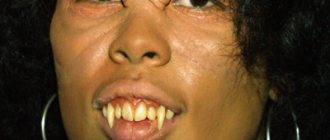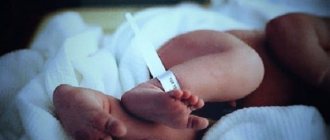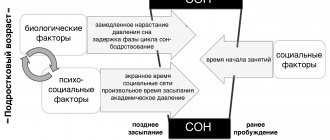Fainting (syncope) is a short-term loss of consciousness, during which muscle tone sharply decreases, then - after a minute or two - the person returns to consciousness without resuscitative measures.
There are different types of fainting, and the prognosis varies for each case. However, the essence of this condition is always that the brain does not receive enough blood, it stops working normally, and loss of consciousness occurs.
Three main types of fainting
1. Reflex (neurotransmitter) fainting occurs due to a malfunction of the nervous system and, as a consequence, vasodilation and a decrease in heart rate (bradycardia). Systemic blood pressure drops, and as a result, blood supply to the brain is disrupted. There are two types of reflex fainting:
- Vasovagal (neurocardiogenic) syncope occurs when the autonomic nervous system, which regulates blood pressure and heart rate, is disrupted. This is the most common type of fainting; it occurs especially often in athletes, young and generally healthy people. Vasovagal syncope usually occurs in a person who is standing or sitting. In this case, there is often a pre-fainting state: dizziness, lightheadedness, flush of heat, pallor, nausea, vomiting, abdominal pain, increased sweating. There is usually no cause for concern with vasovagal syncope. Such fainting can occur after a strong cough, sneezing, laughing, fright, severe pain, at the sight of blood, as well as while being in a crowded place, a hot room, in the sun, after physical exertion, urination, defecation, etc.
- Sinocarotid syncope, which occurs when pressure is placed on the carotid sinus (the dilated part of the common carotid artery). This can, for example, occur when the neck moves (in particular when a man shaves and turns his head), or if the shirt collar is too tight.
2. Fainting due to orthostatic hypotension. Orthostatic hypotension is a decrease in blood pressure during a change in position from horizontal to vertical, that is, at the moment when a person stands up. It can occur for a variety of reasons:
- from dehydration (including due to diabetes mellitus);
- with Parkinson's disease;
- after taking antiarrhythmic or antihypertensive drugs (especially in older people in the heat), antiemetics, antidepressants and antipsychotics;
- from drug and alcohol abuse;
- due to internal bleeding as a result of violation of the integrity of internal organs after injury or due to complications of various diseases;
- after standing for a long time, especially in crowded, stuffy places.
3. Cardiogenic syncope is associated with cardiac dysfunction. It can occur even when a person is lying down. Usually there are no warning signs - the person suddenly loses consciousness. This type of fainting indicates a serious threat to life and health. It occurs more often in people with a family history of unexplained sudden death or early cardiovascular disease. Fainting can be caused by:
- arrhythmia;
- ischemia (lack of blood supply) due to severe narrowing of the coronary vessels, as well as a tumor or blood clot that impairs the patency of a large vessel;
- structural changes (cardiac tamponade, aortic dissection, congenital anomaly of the coronary arteries, hypertrophic cardiomyopathy, etc.).
Sometimes fainting can be associated with hypoglycemia (too low blood glucose levels) due to diabetes, panic or anxiety disorder, etc.
A non-convulsive epileptic attack can also look like fainting, but it lasts longer than a regular faint, and after it the person does not immediately come to his senses. Also, during an attack, the patient may bite his tongue, and sometimes fecal or urinary incontinence occurs.
Loss of consciousness in some cases is caused by serious neurological disorders: stroke, transient ischemic attack, subclavian steal syndrome (deterioration of blood supply due to narrowing or blocking of the lumen of the subclavian artery), severe migraine.
Loss of consciousness after a traumatic brain injury also cannot be called fainting; in this situation, you must consult a doctor so that he can assess the severity of the damage.
In rare cases, loss of consciousness can be caused by narcolepsy, a condition in which a person experiences daytime sleep attacks and cataplexy (sudden relaxation of muscles).
Causes
Main causes of fainting
Main causes of fainting:
- Dysregulation of the cardiovascular system:
- vasodepressor syncope;
- orthostatic hypotension:
- situational fainting;
- reflex fainting;
- hyperventilation syndrome.
- Mechanical obstruction to blood flow at the level of the heart and large vessels:
- heart rhythm disturbances;
- vascular lesions of the brain.
- Loss of consciousness in other diseases:
- hypoglycemia;
- epilepsy;
- hysteria.
When should you see a doctor if you faint?
If you faint, this is not always a reason to see a doctor. For example, if nothing like this has happened before, if this is the first fainting spell in several years, then most likely you do not have any life-threatening diseases. However, there are “red flags” for the person and for those who witness the fainting, indicating that they need to seek medical help:
- fainting lasts more than 2 minutes;
- fainting occurs frequently;
- You fainted for the first time after 40 years;
- You were injured while fainting;
- you have diabetes;
- You are pregnant;
- you have had or have heart disease;
- before fainting you felt chest pain or strong or irregular heartbeat;
- during fainting, urinary or fecal incontinence occurred;
- if you start to feel short of breath.
Diet
Diet for the nervous system
- Efficacy: therapeutic effect after 2 months
- Timing: constantly
- Cost of food: 1700-1800 rubles per week
Nutrition for people prone to fainting should be complete and varied. To choose the right diet, first of all, you need to find out the cause of such manifestations. The diet is formed depending on the presence or absence of heart disease, vascular disease, diabetes mellitus , etc. The basic nutritional rules should be as follows:
- The menu should be dominated by fresh and properly processed products.
- The diet should be varied to provide the body with essential microelements and vitamins .
- It is better to eat food 5-6 times a day in small portions to prevent the feeling of extreme hunger.
- If the state of the body allows, you need to introduce as many vegetables and fruits into your diet as possible.
- Proper drinking regime is necessary, because dehydration can also cause fainting.
If a person experiences reflex fainting, he should adhere to the principles of a diet for the nervous system .
What will the doctor do?
The doctor must understand what is the cause of fainting and whether there is a threat to life and health. To do this, he will ask about the episode itself, about the medical history, about the illnesses of relatives (especially about early heart problems), conduct an examination and do an electrocardiogram. It is very important to tell your doctor everything you felt before and after you fainted, as additional symptoms can be very helpful in making a diagnosis. For example, chest pain in some cases indicates acute coronary syndrome (myocardial infarction or unstable angina) or pulmonary embolism. Rapid heartbeat is often a sign of arrhythmia. Shortness of breath may be a manifestation of heart failure or pulmonary embolism. Headache in some cases indicates vascular disorders and hemorrhages.
Often, the patient, among other things, has a stool test for occult blood (this checks for bleeding in the gastrointestinal tract), a blood test to determine whether there is anemia, and a blood test for brain natriuretic peptide (this can indicate problems with heart). The woman will most likely be given a pregnancy test. The doctor can see how much your blood pressure and pulse change when you change your body position.
If the doctor believes that it is likely that carotid syncope has occurred, carotid sinus massage will be required to confirm the diagnosis.
If subarachnoid hemorrhage is suspected, a CT scan of the brain and a lumbar puncture may be needed.
If the doctor suspects that the problem is epilepsy, he will prescribe an electroencephalography.
If you suspect heart problems, your doctor may admit you for observation in the hospital, send you for an ECG and echocardiography, perform Holter monitoring (24-hour ECG recording), electrophysiological study of the heart, or coronary angiography. In difficult cases, an implantable (subcutaneous) loop ECG recorder may be installed for several months.
A high risk of severe consequences is indicated by:
- ECG abnormalities;
- structural changes in the heart;
- symptoms indicating heart failure (shortness of breath, weakness, fatigue, swelling, etc.);
- low blood pressure (systolic - “upper” - below 90 mm Hg);
- shortness of breath before or after fainting, or at the time of treatment;
- blood hematocrit is less than 30%;
- old age and the presence of concomitant diseases;
- sudden deaths in the family due to heart problems.
Prevention
Knowing what to do if you faint, you also need to take preventive measures:
- eat rationally (it is better to consult your doctor about your individual diet);
- Moderate physical activity must be present;
- walk at least 2 hours a day;
- Women during pregnancy should regularly visit a gynecologist;
- eliminate extreme loads and overheating;
- Among medications, the doctor may prescribe nootropics, venotonics, adaptogens, and vitamins.
Treatment after fainting
Whether you need any treatment after fainting depends on the cause.
In case of reflex fainting, provoking factors should be avoided, since no treatment is required in this case. If you faint while your blood is being drawn, tell the nurse so they can have you lie down on the couch before pricking your finger or giving the injection. If you don't understand what exactly causes fainting, but your doctor says there is no threat to your health, you can keep a diary to determine the triggering factors.
In case of anemia, it is necessary to find out its cause and correct it: the range of conditions leading to anemia is very wide - from an unbalanced diet to a tumor.
If you have low blood pressure, it is recommended to avoid dehydration, not to eat large meals, and to drink caffeinated drinks. To prevent the pressure from dropping sharply, after you get up, you can resort to special maneuvers: cross your legs, tense the muscles in the lower part of your body, clench your fists or tense your arm muscles.
If fainting is caused by taking any medications, the doctor will stop or replace the culprit drug, change the dose or time of administration.
Some heart conditions will require surgery, including installation of a cardioverter-defibrillator (a device that monitors the heart's rhythm). In other cases, conservative therapy, for example, antiarrhythmic drugs, helps.
List of sources
- Bova A.A. Syncope in clinical practice: educational method. allowance. – Mn.: Asobny, 2009. – 45 p.
- Autonomic disorders: Clinic, treatment, diagnosis / ed. AM Wayne. – M., 1998. – 752 p.
- Guseva I.A., Bondareva Z.G., Miller O.N. Causes of syncope in young people // Ros. cardiology journal. - 2003. - No. 3. — P. 25-28.
- Stykan O.A. Akimova G.A. Differential diagnosis of nervous diseases: a guide for doctors. - St. Petersburg: Hippocrates, 2000. - P. 132-177.
First aid for fainting
When you feel that you are about to faint (pre-fainting or, for example, causeless yawning), lie down so that your legs are higher. Or sit with your head between your knees. This will allow more blood to flow into the brain. If you do lose consciousness, after you come to your senses, do not get up immediately. It's better to give yourself 10-15 minutes to recover.
If a person begins to lose consciousness before your eyes, follow the same instructions: lay him down so that his legs are higher than his head, or sit him down and lower his head between his knees. It is also better to unfasten the collar and loosen the belt. If a person does not come to consciousness for a long time (more than 2 minutes), lay him on his side, monitor his breathing and pulse and call an ambulance. It is not recommended to use ammonia: firstly, it is unclear whether it brings a person to consciousness faster, and secondly, it can be dangerous in some diseases, for example, bronchial asthma.
Accompanying symptoms
There comes a moment of loss of consciousness - blood pressure drops sharply, it is very difficult to listen to heart sounds, the pulse is thread-like, practically not palpable during palpation (it can be extremely frequent or rare). The muscles are in a state of sharp relaxation, neurological signs are absent or maximally reduced, which is typical for this condition. The pupils are dilated and react poorly to light reactions. The duration of fainting ranges from a few seconds to five minutes. In the case of a longer period of attack, a protracted (deep fainting) occurs, accompanied by convulsions and involuntary urination. Some fall with their eyes open, which later causes dryness. To prevent the mucous membranes from drying out, a sterile napkin is placed on top. It is possible to distinguish true fainting from epileptic fainting by comparing the symptoms: in the first case, the patient does not bite his tongue, there are no clonic convulsions with adversive spasm.










